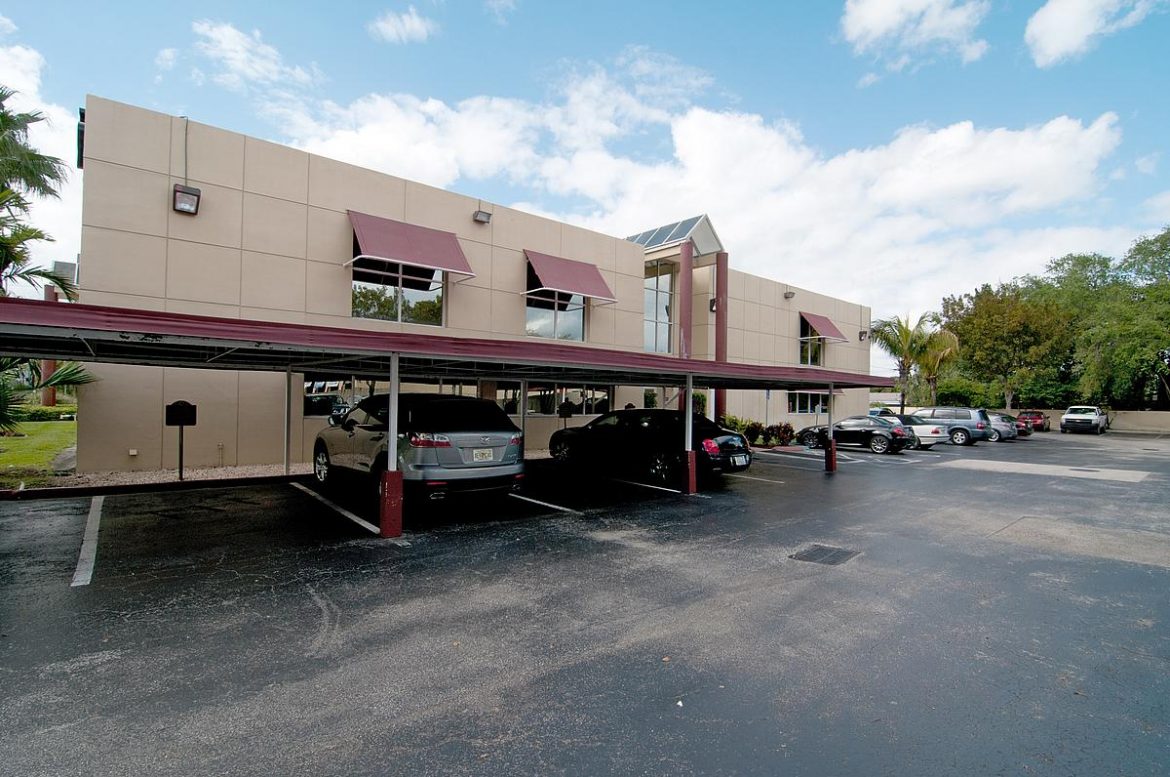As Miami continues to experience a post-pandemic boom, The Gateway of Wynwood – the newest office building in the Wynwood area – announces tech start-up OpenStore’s expansion and the growth of its impressive roster of tenants with the addition of two new leases.
Aron Rosenberg, the developer behind The Gateway at Wynwood, has signed a lease with OpenStore for an approximately 26,000-square-foot expansion, bringing the company’s total footprint in the building to over 40,000 square feet. At the same time, The Gateway at Wynwood signed a new lease with Baseline, a vertically integrated platform investment company, for 5,000 square feet of office space. It also signed a lease with Mediterranean-Asian-Fusion Steakhouse concept DALIYAH and MIZU Rooftop Garden for approximately 6,000 square feet of ground-floor restaurant space plus the nearly 3,000-square-foot rooftop area.
The Gateway at Wynwood was represented by Colliers’ Executive Managing Director Stephen Rutchik, Managing Director Tom Farmer and Director Tyler de la Pena in the office lease transactions. CBRE’s Alex Cesar, First Vice President of Retail Advisory and Transaction Services, and Drew Schaul, Senior Vice President of Advisory and Transaction Services, represented The Gateway at Wynwood in the retail lease.
“Leasing activity has ramped up since the building’s opening, and we are excited to welcome these new tenants and see a current tenant expand so fast at The Gateway at Wynwood,” said Shelby Rosenberg, R&B Realty’s Head of Development and Acquisitions, Asset and Property Manager, US Portfolio. “Our building continues to remain a hub for new-to-market tenants, expansions and relocations to Wynwood, the ‘place-to-be’ for companies looking for a live-work-play environment. We are proud of the role we have played in the transformation of this community into one of Miami’s hottest neighborhoods.”
The Gateway at Wynwood, which opened in 2022 as the first tenant took occupancy in January, recently achieved LEED Gold Certification. The building implemented practical and measurable strategies and solutions in areas including sustainable site development, water savings, energy efficiency, materials selection and indoor environmental quality. Green buildings allow companies to operate more sustainably and give the people inside them a healthier, more comfortable space to work.
OpenStore, the building’s first tenant to officially move in, is a platform that allows entrepreneurs with Shopify businesses to sell their companies and receive liquidity for what they’ve built. Founded by Keith Rabois of Founders Fund, Jack Abraham of Atomic, and Michael Rubenstein, the former President of AppNexus, OpenStore connects merchants and customers into a single unified shopping experience through access to data, information, and capital. The company announced in July that it raised $30 million in Series A funding, with a valuation of $250 million. OpenStore’s goal is to offer instant liquidity for eCommerce entrepreneurs.
Baseline is focused on developing and operating short and long-term single-family rentals. Baseline’s principals have delivered over 4,000 market-leading vacation rentals and 20,000 single-family homes with an aggregate value of over $7 billion. This will be the Orlando-based company’s first Miami office.
DALIYAH and MIZU Rooftop Garden’s concept was created by DZYNE Hospitality and OPSO Group, which are partnering with Canada’s A5 Hospitality. DZYNE Hospitality, led by Derrick Orosa, aka “DZYNE,” is working with OPSO Group, the company behind some of Miami’s trendiest restaurants, including Midtown’s MAÜ MIAMI and KAVO MIAMI, on the new concept. Founded by Alexandre Besnard and Patrick Hétu, A5 Hospitality has been a leading player in Montreal’s hospitality industry for 15 years. A5 has a varied yet targeted offering, ranging from high-end Japanese dining to large-scale entertainment projects, specializing in the development and operation of restaurants and bars. MIZU Rooftop Garden is set to open first, in time for Art Basel 2022, with the downstairs restaurant, opening by Summer of 2023.
“Our Rooftop Garden has the most amazing views of the entire Miami Skyline, South Beach, Brickell, Downtown, Midtown, Design District and of course, Wynwood”, said DZYNE of DZYNE Hospitality. “Our high-end Mediterranean Japanese Steakhouse will be situated in between all the action of Wynwood, making it the ideal destination location, where you can have amazing Japanese cuisine with disco, retro and high energy music playing throughout the restaurant or take our private elevator directly to the Rooftop Garden and lay back for some specialty cocktails, bottle service, Japanese Krudos, fresh sushi and cold Japanese dishes, as well as Wagyu and Kobe BBQ.”
The Gateway at Wynwood offers about 195,000 square feet of leasable Class A office space and nearly 25,900 square feet of prime street-level retail space. Designed by renowned architect Kobi Karp, the environmentally responsible building features flexible floorplans, a private rooftop terrace, gym, unique bay window system, 24/7 on-site security, vibrant exterior cladding, and 2:1,000 on-site covered parking. The Gateway at Wynwood announced the building’s first office lease with biotech company Veru Inc in the summer of 2021. The eight-year, 12,155-square-foot lease will serve as the company’s global headquarters and triple Veru’s current office space.


